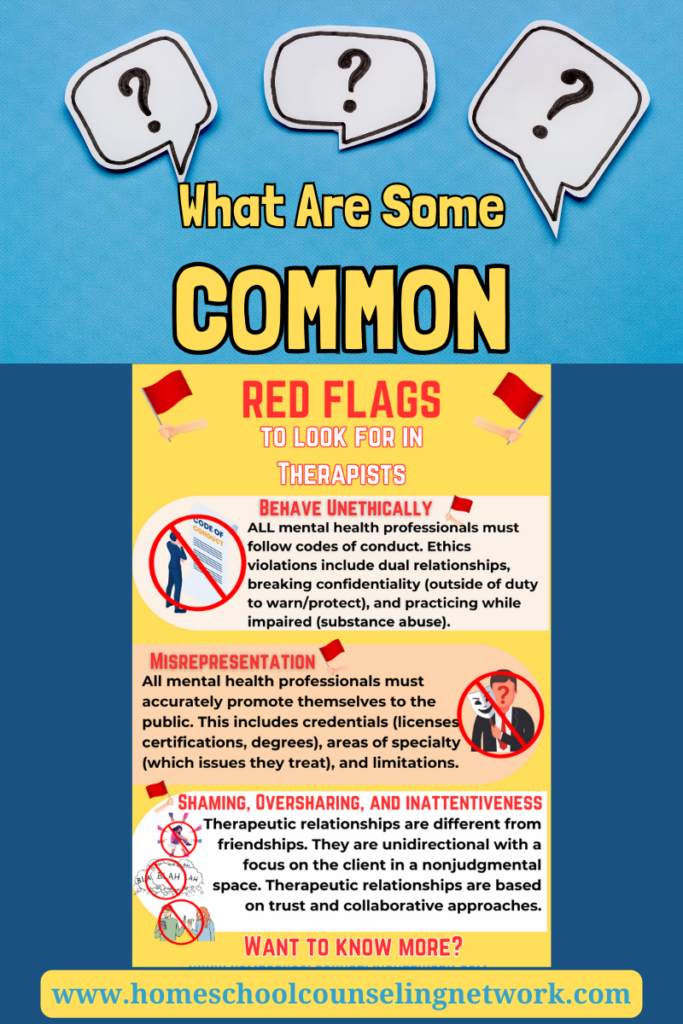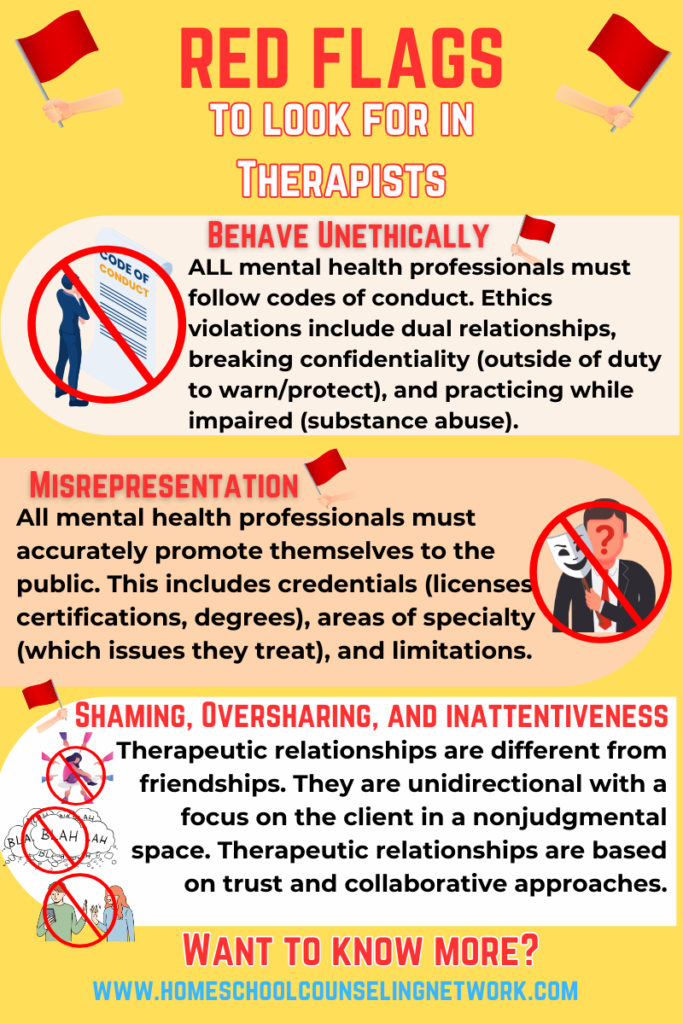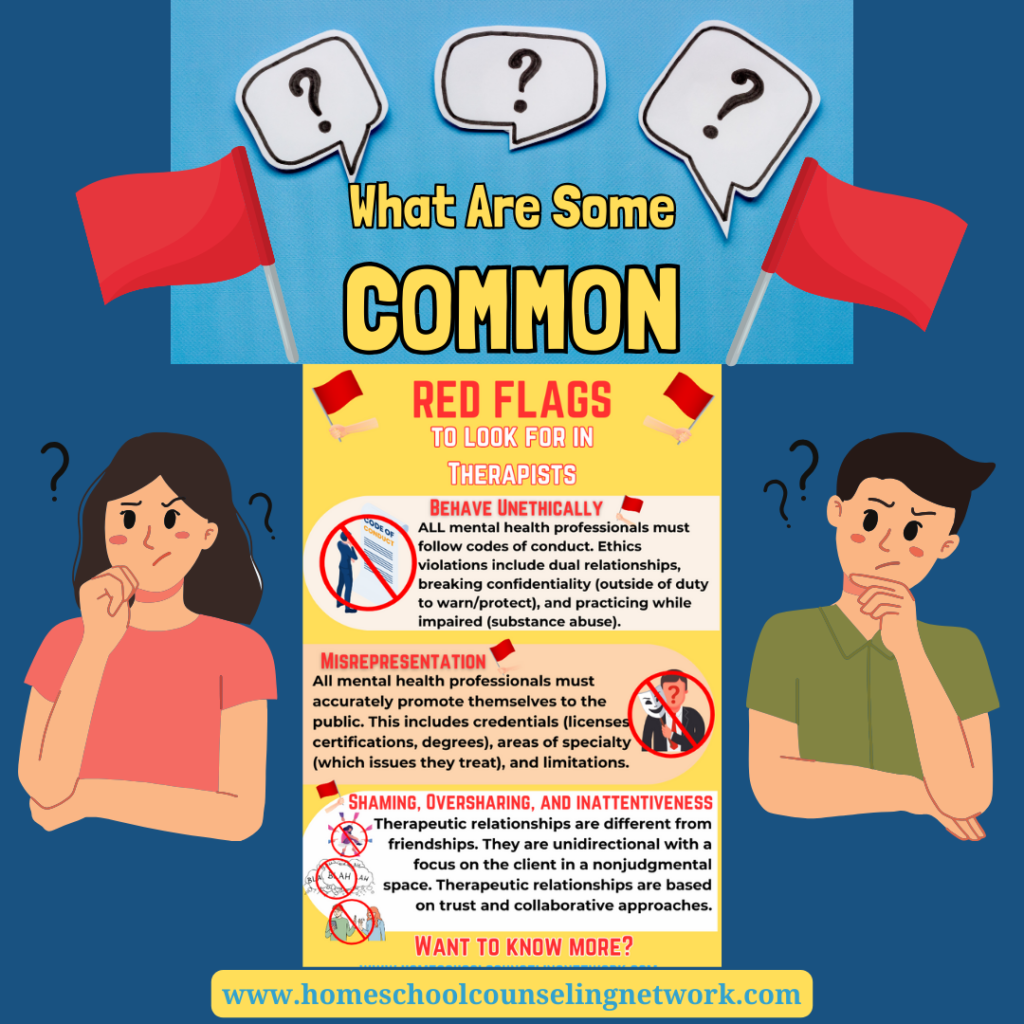Common Red Flags Homeschoolers Should Look For in Therapists

In our previous blog posts, we welcomed you to The Homeschool Counseling Network, outlined our mission and vision, highlighted how different mental health providers can support homeschooling families, touted the merits of allied health professionals, introduced you to Counseling 101, and taught you about the importance of performing due diligence before entering into a client-professional relationship.
In today’s post, we are going to dive a bit deeper into the topic of due diligence by teaching you about red flags.
Seeing Red
When seeking care from any provider, mental health, medical, or otherwise, part of performing due diligence is educating yourself on common signs that a practitioner may not be a good fit, may be compromised as a professional, or may even be deceptive or fraudulent.

In the above graphic, we touch on three main areas for Red Flags:
- Behaving Unethically – All mental health professionals have codes of conduct and codes of ethics to adhere to as part of their professional practice. Ethical violations can look like many things. Some of the more commonly known are unwarranted breaching confidentiality (i.e., not duty to warn or protection from harm), engaging in dual relationships (i.e., dating clients, becoming friends with clients, making sexual advances towards a client)
- Misrepresentation – All mental health professionals must accurately promote themselves and their services to the public. This includes credentials (licenses, certifications, and degrees), areas of specialty they are trained to treat (anxiety disorders, depression, trauma, pediatric or geriatric populations), and limitations. Even professionals with multiple degrees and decades of experience are not equipped to treat all areas. This is where referral networks come in.
- Shaming, Oversharing, and Inattentiveness – A therapist is not necessarily forbidden to share about his or her life with a client. Some sharing, when well-timed, and used sparingly with discernment, can strengthen the therapeutic bond and be beneficial for the client. (**NOTE: The key part of that sentence was beneficial FOR THE CLIENT.) Therapeutic relationships flow in only one direction, from the therapist to the client. Therapeutic relationships are NOT friendships. Shaming and inattentiveness are also unacceptable and inappropriate. Therapeutic relationships are collaborative efforts based on mutual trust and respect.
**This list is neither exhaustive nor comprehensive.

Coming Up
Join us for our next blog post where we discuss some important points to ponder, such as whether alphabet soup is a dish that matters when it comes to finding the right fit between client and provider.
Let’s Keep In Touch
Be sure you do not miss a blog post by signing up for our email list, liking our Facebook, Instagram, Linked In, or Pinterest pages, or subscribing to our YouTube channel.
Like what you see here? Sharing is caring!
Blessings,
Kimberly Bennett, LPC
IOH Mom
Founder/CEO, It’s Only Homeschooling
Founder/CEO, The Homeschool Counseling Network

This website is not a professional counseling website and nothing here should be construed as professional counseling advice. Although Kimberly Bennett, LPC is a Licensed Professional Counselor, she is not your counselor, and no counselor-client relationship is established unless she has signed an agreement with you. All information provided through this website is for informational and educational purposes only.